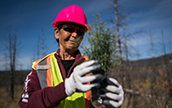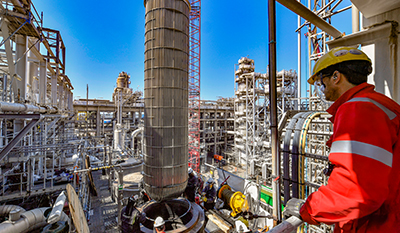Preparing for emergencies
Ensuring that we have the necessary resources to deal with spills, leaks, fires and explosions, both offshore and onshore, is essential to meet our aim to do no harm to people and to have no leaks across our operations. We must maintain the robust procedures and capability to respond rapidly to an incident in our operations, in collaboration with relevant stakeholders.
Spills
We have programmes in place across our operations to reduce the number of operational spills. The volume of operational spills of oil and oil products of more than 100 kilograms to the environment (land or water) in 2021 was 0.05 thousand tonnes, a significant decrease from 0.4 thousand tonnes reported for 2020. In 2020, the numbers included an underground leak of around 0.3 thousand tonnes (plus or minus 30%) of light gas oil in Germany, formed at some point between 2016 and 2019, with the volume established in 2020. In 2021, the largest operational spill was a spill of around 15 tonnes in Nigeria.
Spills – operational [A]
There were 41 operational spills of more than 100 kilograms in 2021, compared with 70 in 2020.
Spills – sabotage [A] [B]
[B] All sabotage- and theft-related spills occurred in Nigeria except in 2016 (0.001 thousand tonnes).
In 2021, all the spills caused by sabotage and theft were in Nigeria. The number of these spills decreased to 106 in 2021 from 122 in 2020, while the volume of these spills increased to 3.3 thousand tonnes from 1.5 thousand tonnes in 2020.
Read about our emergency response procedures at www.shell.com/process-safety.









